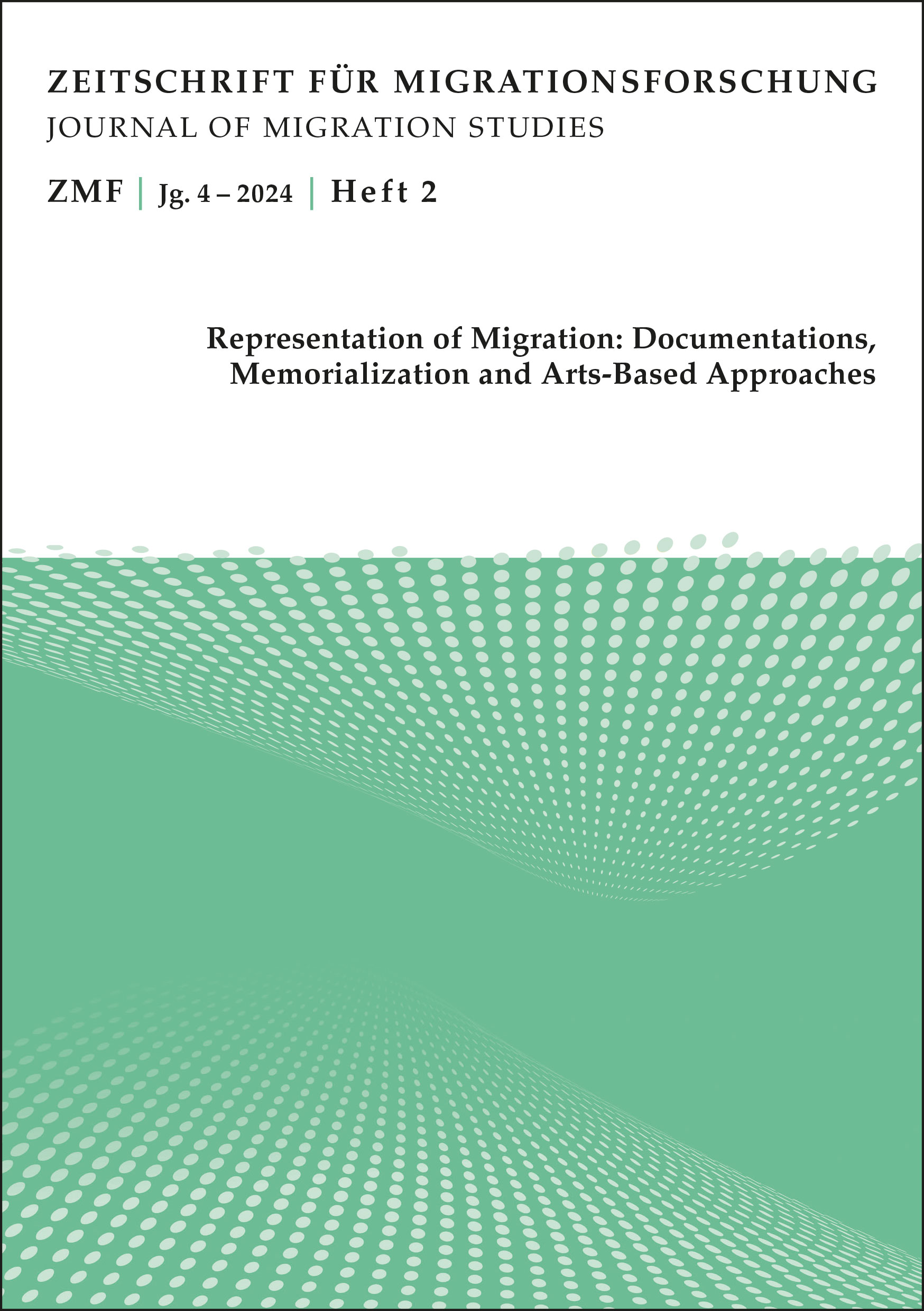Hauptsächlicher Artikelinhalt

Abstract
The following article addresses the question of how the poetry of authors who have experienced flight and displacement can be understood as a form of humanitarian work. The focus lies on possible connections between the genre of poetry and the concept of témoignage (›to witness‹), an ethical principle primarily anchored in humanitarian contexts that describes the aim of actively bearing witness to the plight of people in need. My reflections are based on a close reading of the anthology Making Mirrors (2019) written by Arab and African refugee poets. I understand the examined poems as expressions that position readers as witnesses to partly unspeakable but no longer unspoken experiences of displacement and, from that perspective, argue that such poetry can be conceived as a form of aesthetic témoignage that supports humanitarian causes.
Ästhetische Témoignage: Die Lyrik Geflüchteter als Lyrik des Humanitären
Der folgende Artikel untersucht, inwiefern die Lyrik von Autor*innen mit Fluchterfahrung als Form humanitärer Arbeit verstanden werden kann. Im Zentrum stehen dabei etwaige Verbindungslinien zwischen der Gattung der Lyrik und dem Konzept ›temoignage‹ (= ›Zeugnis ablegen‹), ein vor allem in humanitären Kontexten verankertes ethisches Prinzip, das das Ziel beschreibt, das Bewusstsein für Menschen in Not zu schärfen. Meine Überlegungen sind gestützt auf ein close reading des von arabischen und afrikanischen Autor*innen mit Fluchterfahrung verfassten Gedichtbands Making Mirrors (2019). Die untersuchten Gedichte verstehe ich hierbei als Zeugnisse von teils unsäglichen, aber nicht länger ungesagten Erfahrungen von Vertreibung, und argumentiere, dass sich entsprechende Lyrik als eine – den humanitären Gedanken unterstützende – Form ›ästhetischer témoignage‹ definieren lässt.
